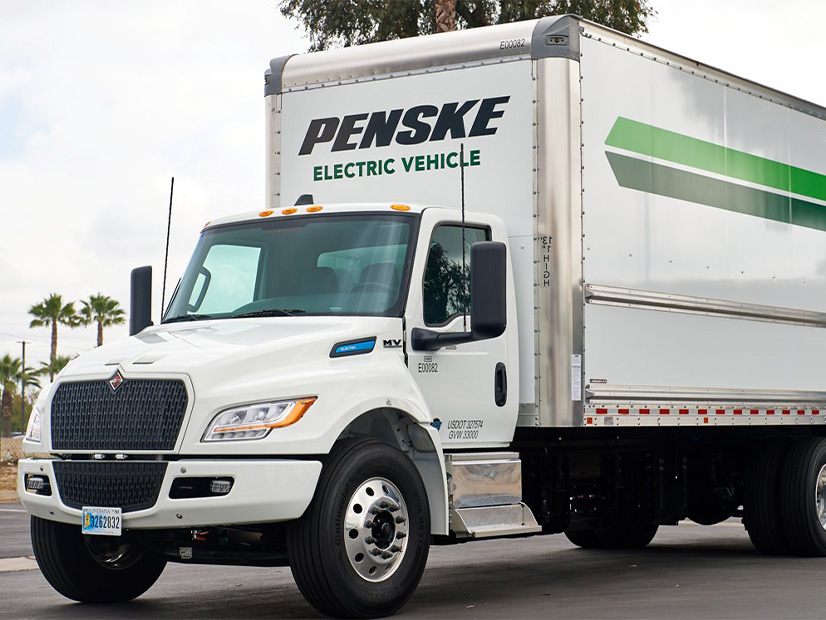
California ZEV infrastructure projects are receiving $150 million in federal funding, including $102 million for a tri-state charging network for medium- and heavy-duty trucks.
The money is from the Federal Highway Administration’s Charging and Fueling Infrastructure competitive grant program, which was created by the Bipartisan Infrastructure Law. U.S. Sen. Alex Padilla (D) announced the grant awards Aug. 26.
The bulk of the funding — $102.4 million — is going to the West Coast Truck Charging and Fueling Corridor project, a joint effort of the California, Oregon and Washington departments of transportation and the California Energy Commission (CEC). The corridor would stretch from border-to-border along the West Coast.
As described during a workshop last year, it would include 34 truck stations and five hydrogen fueling stations. The stations would be primarily along Interstate 5, with some locations on “key connecting corridors,” such as I-710 in the Los Angeles area. (See EV Charging Efforts Ramp up on West Coast.)
“To successfully meet California’s critical climate goals, we need to scale up our charging and fueling infrastructure up and down the state through transformative projects like the West Coast Truck Charging and Fueling Corridor project,” Padilla said in a statement.
The three state DOTs and the CEC applied for the Charging and Fueling Infrastructure grant funding in June 2023. California Democrats who supported the tri-state corridor described it as a $700 million project.
“This first-of-its-kind project will create a network of charging and hydrogen fueling stations and enable zero-emission trucking from Mexico to Canada, linking ports and major freight centers in California, Oregon and Washington,” Rep. Pete Aguilar (D) and other lawmakers said in a letter last year to Transportation Secretary Pete Buttigieg.
The West Coast Truck Charging and Fueling Corridor is seen as complementary to the $5 billion National Electric Vehicle Infrastructure (NEVI) formula program, which is also funded through the Infrastructure Investment and Jobs Act (IIJA). The NEVI program aims to establish EV charging networks throughout the U.S.
The IIJA provides $2.5 billion over five years for the Charging and Fueling Infrastructure program. The program funds projects on two tracks: charging and alternative fuel corridors and community charging.
Four other California projects are receiving Charging and Fueling Infrastructure funding, according to Padilla’s announcement. The awards are:
-
- $15.1 million to the Fort Independence Indian Community for EV charging along U.S. Route 395, a designated alternative fuel corridor.
- $15 million to the county and city of Los Angeles and the Los Angeles County Metropolitan Transportation Authority for 1,263 Level 2 chargers and eight DC fast chargers on curbside light poles, at community facilities and at park-and-ride lots.
- $14.1 million to the San Francisco Bay Area Rapid Transit (BART) District to install Level 2 chargers at all BART-managed parking facilities.
- $3.2 million to the Shingle Springs Band of Miwok Indians to install 70 EV charging stations on the reservation and along U.S. Route 50, a designated alternative fuel corridor.



